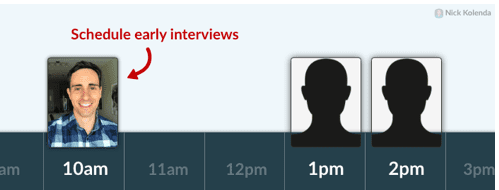Important Job Interview Skills Considerations
Having trouble understanding how best to approach applying for a new position? Looking for job interview skills that will help you better your chances of being shortlisted? Are you looking at key job interview questions and answers that you should prepare? Here we will look at the key aspects at all stages of the job application process.
Job Interview Skills for Job Seekers
So, you are actively job hunting, how do you prepare best? Perhaps you have been doing this for a while and need a new outlook. Maybe, you are new to the job market and need assistance. Are you still employed and want to start looking for new opportunities? Or perhaps there is an internal transfer opportunity you are applying for. These job interview skills and techniques will help you regardless of the situation. Also, these key interview questions and answers will guide your preparation.
First, look at the process in stages. Stage one is the pre-application. Next, concentrate on the application itself. Once an interview has been secured, move on to the next stage of interview prep. Finally, the interview itself. We will break down each stage and define the best steps to take. Remember, important job interview skills don’t start at the interview stage. They start from the search for an upcoming job opportunity.
Pre-application Stage – 3 Key Points
Job Alerts
At the pre-application stage, we need to be sure of where we are looking. Nowadays, due to the knock-on effects of the pandemic, applying for jobs can be a very stressful situation. To reduce the stress even slightly, have specific job search actions in place. If you are receiving alerts for new job postings, make these specific to your experience and skill set. Unnecessary email alerts can become overwhelming and demotivating. Use reliable sites that you can trust to provide valuable job alert information. Tailor the keywords to positions you would apply for. Fine-tune these searches to include locations, salary, and level where possible. These keywords will also feature in your job interview skills preparation.
Sticky Learning ® is 7 times more effective than 1-day training courses. Plus, you will get a Chain of Evidence proving your Return on Investment. Discover soft skills training that changes behaviours long term.

Family and Friends
You don’t have to do this alone. Have family and friends keep their eyes open for any vacancies that would be suitable for you. They may hear about an opening that might be just right for you. Let others help, use their contacts, without abusing them. However, avoid putting pressure on those close to you for a job, you don’t want to lose your support network.
Pros and Cons List
Make your list of your capabilities and areas of improvement. Before drafting your CV for the next stage of the process, be ready to highlight the key strengths you have that will work for that role. You can then use this list to compare it against job adverts. Do you have a degree? Do you have the experience (years, skills, etc.) they are looking for? Have that list, physical or mental, ready when reviewing job adverts. Again, these will be useful as successful interview techniques as well, so you are already practising.
Throughout this pre-application stage, you will start preparing your job interview skills. By refining your job searches, you are highlighting your skill set that can be discussed in interviews. By highlighting your strengths to family and friends, you put them front and centre. This is an important practice for potential interviews.

Application Stage – Best Practices
So, now you have found some possible openings. Which do you apply for? Do you cross industries? Do you stay in your comfort zone? Big decisions need to be made here.
Match Your Profile
Look for key role definitions and responsibilities that match your own experience and skill set. CVs will be reviewed quickly for these key aspects. Make sure that yours stand out. Match your CV description to their key areas of focus.
Prepare Your CV Carefully
Make sure your CV is eye-catching. Recruiters will receive numerous applications for even one opening, so your CV needs to stand out. This is in terms of design and content.
- Make your contact details easy to find, include your email and phone number at the top.
- Place your experience in reverse chronological order, most recent first.
- Use bullet points of key responsibilities.
- Reduce earlier roles in terms of information amount.
- Expand on key responsibilities that match the role you are applying for.
- Do spell and grammar checks.
- Have someone review it for you. Someone familiar with receiving CVs, if possible. They will give you more constructive feedback.
The Cover Letter
Do you include one or not? Some recruiters will specifically ask for one. When one is required, be sure to write to that employer. In other words, personalise the greeting and information. If you choose to add one, make sure it shows your personality as well as new information that is not found on your CV. Your cover letter should sell your key attributes and accomplishments.

Job Interview Preparation
During this stage of the process, you are preparing yourself for the upcoming interview. Preparation is key. If you have the chance to gain any job interview skills training, take this opportunity. This can be through an online review of job interview skills. Also, you can ask a friend to help run through possible job interview questions with you.
There are many different types of interviews. You need to be prepared for multiple approaches and questions. Some of the most common interview types are explained below.
Traditional Interview
This is a face-to-face interview in an office setting. The main focus is on your CV and experience to date. The interview questions tend to be more generic. Examples of traditional interview questions include “What are your strengths and weaknesses?”, “Where do you see yourself in XX years?”, etc.
For these interviews, be sure to dress appropriately and arrive early, not just on time. Check your travel route in advance to avoid any delays. If it helps, take some deep breaths before it all starts.
TIP: Schedule your interview in the morning so that you are the first interview of the day. Managers will compare all subsequent interviews to your interview, solidifying your interview in their long-term memory.
Caveat: If the managers are hiring immediately, do the opposite: Choose the final slot of the day to remain in their working memory when they decide.

Behavioural-Based Interview
Here the focus of the interview questions and answers is on your past experiences of different situations. The behavioural questions will help give recruiters an idea of how you will behave in the future based on previous actions. Your answers should be fact-based on real experiences, not hypotheticals. Examples of behavioural-based interview questions include
“Tell us about a time when you had to deal with a customer complaint. What was the issue and how did you resolve it?”
Or
“Give an example of a time when you were part of a team and the role you played in it.”
Here the recruiter is looking for how you handled the situation, what your role was and what approach you took. These questions are designed to look at how applicants can handle key responsibilities that are linked to the role they are currently filling.
Competency-Based Interview
This approach is to assess your soft skills capabilities. The questions will centre around your skills in areas such as communication, team relations, decision-making, etc. These competency-based interview questions could be both real or hypothetical in nature, so be ready for both question styles. Some examples of competency-based questions include
“How would you deal with a breakdown in communication that leads to a customer complaint?”
Or
“Explain how you have addressed team conflict in your previous role.”
Telephone Interview
Nowadays, more companies are using phone interviews for pre-screening purposes. This type of interview is at the start of the interview process. Usually, it is less formal than a more detailed face-to-face or online/video interview. This gives recruiters the chance to ask some basic questions and get a feel for candidates to further shortlist for the role.
Be ready to make a positive impression during the short call. Highlight key qualities and show confidence. The recruiter may be making multiple calls so you want your call to stand out for future consideration.
Online/Video Interview
In the current climate, more and more companies need to conduct online or video interviews for safety reasons. While previously it would only be used for the reason of distance for recruitment, it is now much more common during the interview process. Video interviews take the same format as other interview types. Be ready for the same types of questions and approaches.
For online or video interviews, still consider your appearance as you would in a face-to-face interview. At least, have a respectable upper-body look, including your smile.
Also, make sure you have checked your connection for the interview. You do not want the video to stall or buffer. Check the sound as well as the visual. Check your background, what can be seen in the video behind you. The best advice, test the connection by using the same site/app to call family or friends before using it for the job interview.
Panel Interview
These interviews are common when multiple leaders are involved in the recruitment process. Also, they can reduce the interview timeframe by having the key decision-makers together. However, while they can be intimidating, be ready for such an event.
Remember, the panel is there to support you through the process, not trip you up. Practice your public speaking skills in advance. Be sure to make eye contact with the person speaking to you for the question. However, share eye contact naturally among the panel members. Be sure to address all members of the panel at the start and end of the interview. Remember, the interview questions and answers from the panel will range in variety depending on their roles in the company.

Practical Job Interview Skills Tips and Techniques
Regardless of the actual type of interview you have, there are some general job interview skills that can apply across the board.
- Remain calm, remember you know the information you will be sharing.
- Be ready to ask some questions yourself. Relate this to all research you have done on the company and role.
- Remember to smile, but make it genuine and relaxed.
- Be ready to share your areas of improvement. We all have them and they are ongoing development areas.
- You can share a story that didn’t have a positive result. As long as you explain what you have learned from it.
- Keep to the facts. Recruiters can tell when you are not being truthful about your experience.
- If you don’t have actual experience with something, own it. However, be ready to show your eagerness to learn new things.
- Again, practice different interview questions and answers in advance. I can’t stress this enough.
Additional Preparation
Preparation for each type of interview is crucial. Interview skills training can be a great way to prepare. Another, practice different behavioural and competency-based questions and answers in advance. You can research common competency questions and answers as well as preparing your own examples to practice.
Open Questions
Be ready to give more than one-word responses. Commonly, interviewers will use open-ended interview questions that require detailed answers. Remember, interview questions and answers are like story-telling. Have your stories ready to share without going overboard. Especially for behavioural and competency-based questions, use these longer, more detailed answers. Have the story in your mind and share the details, feelings, and events as they happened. Be sure to refer back to real-life experiences when the question is styled that way.
STAR Approach to Interview Answers
For the behavioural and competency-based answers, use the STAR approach.
- S – situation
- T – task
- A – action
- R – result
By following these steps, you better explain the key elements of the answer you are sharing. It will create a natural flow as well as cover the full answer. Be sure to include key qualities and soft skills used to handle the situation. Also, include any technical capabilities that are relevant. STAR competency questions and answers are commonly used, so be prepared.
Research the Company
One important point while preparing is to research the company. Visit their website, read articles about the company, and know about their business. Your preparation in this area is key. A common job interview question is “Why do you want to work for/with us?”. Use this research in your answers. The recruiters need to know that you are serious about them as a future employer. And, they do not want to be considered as just any job option.
What Comes After the Interview
Another key consideration is what comes after the interview. Has the recruiter indicated when you will receive an update? Be sure to ask for a time frame for what the next stages will be. Also, offer any additional documents and references that will reinforce your application. These might include certificates of employment, training certificates, or letters of recommendation.
Prepare for Reference Checks
One important part of the recruitment process is the reference check. Be sure to have a selection of references available for this stage. Some recruiters will ask for written references. Others may ask for contact details to speak directly to the references you provide. Always ask a former employer or leader in advance to act as a reference. Consider, direct reports are in the best position to act as references for you. They can best answer questions about your performance and abilities. Also, they will know your personality and character better than indirect reporting lines.
Conclusion
While every interview is different, there is advanced preparation that can be done. Your time invested in preparation will pay off. Eventually, you and the right job will find each other. While rejections are difficult, they are part of the process. So, do not let the interview system overwhelm or demotivate you. Be ready to start the cycle again if this opportunity doesn’t pan out. Remember, give proper focus to all the key stages and you will succeed.




